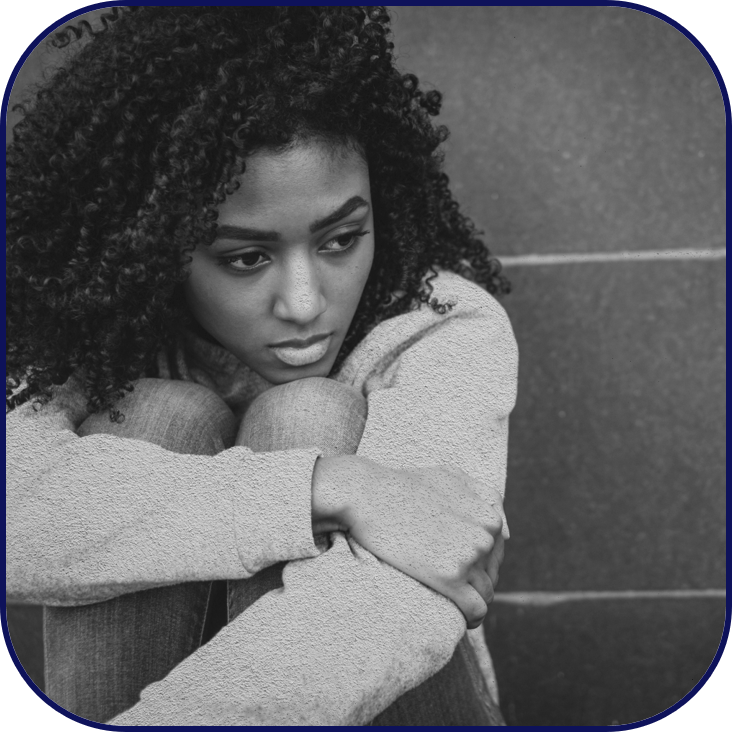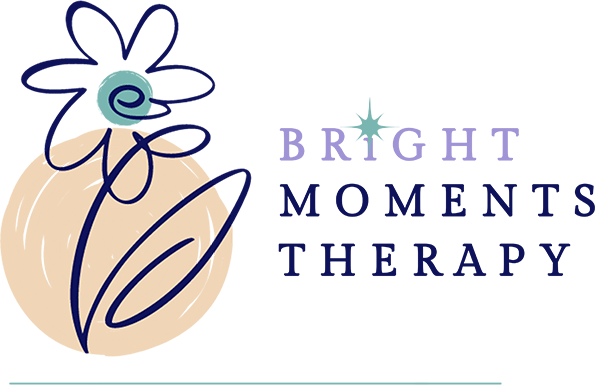Learn about factors that disproportionately affect families of color when it comes to mental health, and coping strategies enabling families to thrive.
SHARE THIS PAGE:

Research has shown that black people are over 20% more likely to experience serious mental health problems. Although lower than the percentage of white counterparts, these occurrences tend to last longer and are more likely to result in disability. The stigma of mental healthcare in black and brown communities has always been an issue when identifying the need to seek professional help from a licensed therapist. There has been progress over the last several years. Still, the Black community, especially Black males, is more likely to seek other ways of dealing with psychological issues, such as religious coping and prayer and leaning on family and friends for support.
Still, black people continue to struggle with psychological issues such as anxiety, depression, trauma, and post-traumatic stress disorder at increased rates. This is not surprising, given the unique challenges we face. To understand the disparities in identifying and treating mental illnesses in our community, we must first accept that many barriers exist and solve them.
Racism
Discrimination and racism are a part of everyday life for African Americans. Whether it be disparate treatment in the workplace, disregard when dealing with health issues, or injustice when dealing with law enforcement and the legal system, the trauma associated with being marginalized can profoundly impact mental health. Racism is widespread and comes in many forms. Let us dive into a few of them:
Healthcare
Black people have a long history of mistreatment within the field of medicine. The most prominent example is the Tuskegee Experiment, in which 399 black males believed they were being treated for Syphilis but never received it. The lack of medical intervention led to other health issues and impacted families for generations. Black women also have a reason for concern; we are two to three times more likely to die from pregnancy-related causes than white women. Over a decade ago, the Institute of Medicine published the Unequal Treatment Report. The data showed that minorities were more likely to receive low-quality care and preventive medicine even after factoring in income, place of residence, comorbidities, and healthcare coverage.
Being denied essential help when needed or disregarded even though a known condition is present will continue to be a source of distrust between the Black community and medical service providers. The ability to find a black mental health therapist can go a long way in building rapport between patients and providers. According to the American Psychiatric Association, only two percent of psychologists in the US identify as Black. In 2021, the APA issued a public apology for historical racism in psychiatry. That year, their annual conference was dedicated to equity, and they increased efforts to recruit practitioners from underrepresented communities.
Justice and Policing
A longstanding stereotype based on racist ideology is that Black people commit more crimes than other demographics. This misperception is perpetuated in the daily media. Black men make up 13% of the male population but 35% of the prison population. This statistic is extensively used to criminalize African American men, leading to an increased likelihood of being killed by police during routine traffic stops, given higher sentences for non-violent crimes, and separated from their families and households at an alarming rate. The fallout is compounded when children are left without the presence of their fathers, and mothers are left to carry the full responsibility of raising kids and providing financial support alone.
The burden and trauma that go together with the ongoing need to be aware of the dangers of the people and systems to protect us are profound and underlying in every life experience, good and bad. This systemic racism is just another element to deal with, along with the same pressures that everyone experiences. Identifying this problem and fixing the disparities in the legal system can help with leveling the playing field. It will not happen overnight, but proactively using available mental health services to address these issues can be beneficial. Black couples separated by incarceration should seek marriage counseling to help deal with the emotional toll. Those with children need to ensure they find a family therapist they can trust to address the mental health needs of everyone.
Culture
The Black community’s culture has long been wrapped in the sense of overcoming, strength, and resilience. This is rooted in the road we traveled to overcome things like slavery, segregation, and oppression. In my lifetime, I have worn my ability to endure like a badge of honor, as has everyone around me in my lifetime. This has created a stigma attached to the belief that having conditions such as depression, anxiety, traumatic stress, or suicidal thoughts is a sign of weakness.
There is good news, though. There has been a shift in perception in recent times, with more focus on getting the help needed to live a healthy and functional life. With more people of color joining the psychiatry field and providing potential patients the opportunity to connect with a professional they can identify with, those seeking help when they need it are sure to increase.
Social media is helping to dispel negative stereotypes about self-care as well. Influencers speak out about their mental health challenges and detail how they focus on their mental health to inspire others to do the same. In addition, many organizations, such as Deconstructing Stigma, are working to build awareness and change attitudes about mental health treatments.
Coping Strategies
You can take steps to address stress, anxiety, or the onset of depression. Trying some of them at the onset of symptoms may help prevent your feelings from worsening.
Insomnia, changes in appetite, and physical reactions like headaches and upset stomachs can show that stress, anxiety, or depression are setting in. Some ways to deal with it are:

- Self-care – Make sure you get enough sleep, eat healthily, and exercise. These are physiological needs that your body requires for balance and good health.
- Meditation – Practicing meditation methods can calm your racing thoughts and create a relaxation response in your body.
- Just say no – More often than not, stress is created by outside circumstances. Feelings of being overwhelmed can raise anxiety levels. Give yourself grace. Avoid overcommitting and make sure you have downtime to relax and recuperate.
- Do what you love – Doing things that you enjoy has been shown to reduce stress in studies. Engaging in activities you love can lift your mood and chase away depression.
- Lean on your circle – Having a community of supportive friends and family to talk to can make all the difference when dealing with these issues. Reach out and stay connected.
- Seek help when needed – Know your limits. When your coping methods are not working, reach out for help.
It Is Okay Not to Be Okay.
Whether you seek therapy or counseling for yourself, your partner, or your entire family, we can help. Learn more about counseling and therapy services for more resilient mental health.
Learn more about counseling and therapy services for more resilient mental health.
Share this page:
